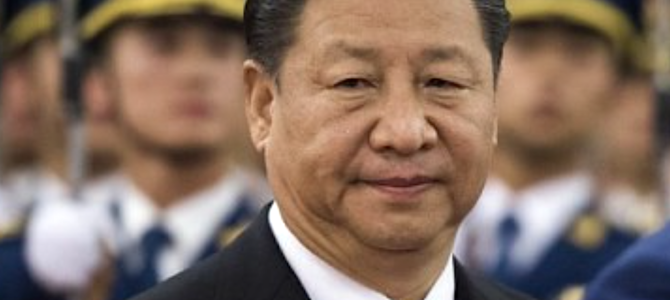China has tried to pull Europe away from America and use it as a counterweight to the United States. The strategy isn’t working. Turns out, Europeans have the same concerns as America over China’s behavior.
On trade, away from all the news of the Trump administration’s disputes with China, Europe is quietly in its own deadlock with the communist country. European governments and politicians are also concerned about China’s treatment of the pro-democracy movement in Hong Kong and abuses against the Uighurs in Xinjiang. These issues are causing rifts between Europe and China, where relations were once cordial, if not cooperative.
Italy, the same country that recently signed up for China’s “Belt and Road Initiative” of infrastructure projects, condemned China’s treatment of Hong Kong’s protesters. Over the summer, the United Kingdom banned Chinese telecommunication giant Huawei from building 5G infrastructure in the country. Even Germany, which manufactures the capital equipment China uses to send goods to the rest of the world, has grown wary of China’s trade practices and human rights abuses.
Europe’s politicians are only beginning to reflect its people. A survey by the European Council on Foreign Relations found 62 percent of Europeans view China in a negative light. The reality is that China has engaged in a specific set of behaviors to make such a large group of people feel this way.
China’s influence also takes place on the corporate level and is only possible because of the size and attractiveness of China’s domestic market. For example, after the Houston Rockets’ general manager tweeted support for the Hong Kong protesters, China began pulling NBA merchandise off shelves and games off television. The National Basketball Association dutifully silenced the general manager and apologized profusely.
China’s bullying isn’t limited to areas in which money is involved. For instance, President Barack Obama famously met with the Dalai Lama, Tibet’s spiritual leader, against China’s wishes. To grant China an olive branch, Obama had the Dalai Lama exit out the back door of the White House not to offend China too much. Photos of the visit famously show the Dalai Lama exiting the White House next to bags of trash.
With weaker countries than America, the bullying is even more pronounced. China spent billions of dollars on loans to corrupt African governments but has often abused and mistreated African people. Those loans were often predatory and meant to give China a foothold over domestic resources, and many were turning bad before the pandemic hit. What little currency China had with the African populace because of its financial largess has been upended by news of how badly — to the point of textbook racism — China treats Africans in the communist country.
In short, China’s foreign policy has won it few friends. What does all this mean for America? We should compete with China, but we shouldn’t fear China. It is likely to remain isolated even if its economy continues to grow. China’s power of coercion isn’t as effective as many in Washington claim.
The fact that China’s coercive efforts are backfiring also offers a lesson for U.S. policymakers. American behavior isn’t even close to being on the same level as China’s. Too often, however, America also engages in coercive efforts to accomplish goals that don’t fit squarely with American interests.
For example, reasonable people can disagree about how to keep Iran from obtaining nuclear weapons. America sanctioning European firms and banks for doing business with Iran, however, which has led to Europe joining Russia and China’s attempt to exit dependence on America’s financial system, has consequences and costs for American power that often go unconsidered in Washington.
Coercion is used often, works far less often, and comes with dangerous side effects. The lesson for the United States is to act as an exemplar of American values, rather than to try to strong-arm others into accepting those values. China provides an example of exactly what not to do.








